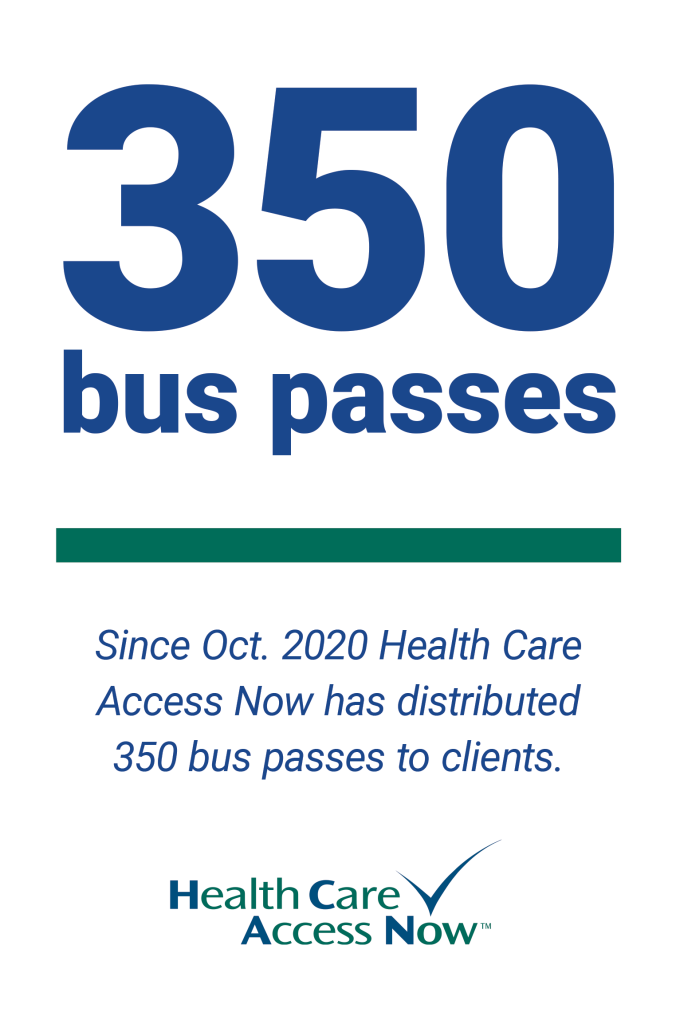Bus passes as transportation help for clients

Having access to reliable personal transportation allows people freedom. A full gas tank in your own car means you can dash out to the grocery store. It means you can fit in a quick doctor’s appointment during an otherwise busy day.
A great many of Health Care Access Now (HCAN)’s clients do not have reliable personal transportation. If an HCAN client is pregnant or managing a chronic disease, it can cause regular disruptions. No one wants to depend on friends or family members to give them a ride every time they need to visit the doctor. And calling a Lyft or Uber means spending extra money that most HCAN clients simply do not have.
Bus passes help ease the burden

The Southwest Ohio Regional Transport System (SORTA) Board of Trustees created the Everybody Rides Metro foundation to “remov[e] economic barriers and provide sustainable transportation to riders” by “subsidizing 50 percent of the cost for partner social agencies to provide Metro fare media [bus passes/tokens] to individuals in need of medical, social services, or work-related transportation.”
In the last three years, more than one million bus tokens have been provided to low-income riders.
HCAN is one such social agency that distributes bus passes to low-income riders. Since Oct. 2020, it has purchased and been partially reimbursed for 350 bus passes distributed to clients in need of a reliable transportation method for healthcare visits.
CHWs help clients navigate the bus system
HCAN’s Community Health Workers (CHWs) work with clients to map the best routes for the journeys they need to take. They reference the bus timetables and make clients aware of additional resources, such as the transit app, which allows riders to track buses, so they don’t need to wait outside at a bus stop for longer than necessary.
Reinventing Metro for greater convenience
Taking the bus isn’t as convenient as having your own vehicle. Bus riders need to walk and wait, deal with the possibility of interrupted service, and sit through others’ stops before arriving at their own. A trip that might take 20 minutes by car could take hours by bus.
But because Issue 7 passed in 2020, Metro is working toward making bus-riding a better experience with its Reinventing Metro plan. For example, it intends to increase frequency of buses along major routes and decrease trip times.
Not for everybody
Metro takes steps to ensure that its service is accessible to the elderly and those with disabilities. However, it can still be difficult for someone in the late stages of pregnancy or a person suffering from a chronic condition to ride the bus—even if it comes on time, even if everything about the ride goes smoothly. Jade Glover, CHW for HCAN, says that some of her clients have even refused bus passes because it takes too long for them to go to an appointment using that form of transportation.
Lack of reliable transportation is a common obstacle that people in marginalized communities face, HCAN CHWs have found. Unfortunately, there is no easy solution. A combination of solutions have to be used—which includes the passes provided by Everybody Rides Metro.






